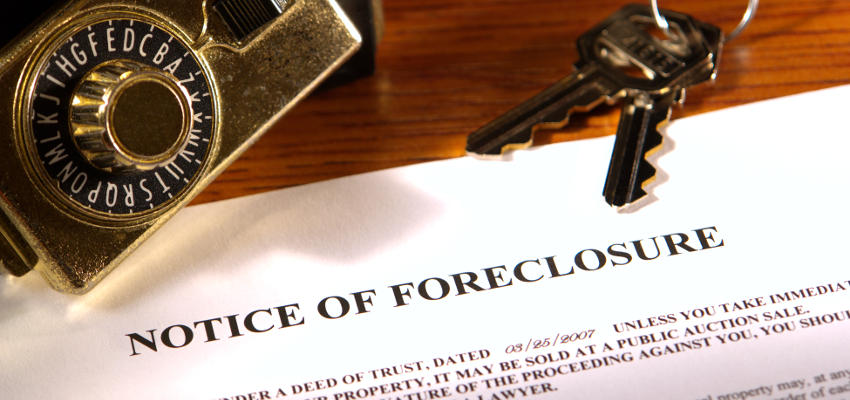
As a homeowner, you never want to think about the word “foreclosure.” If this comes to mind, there’s a good chance that you are having trouble paying your mortgage every month. Even if you find yourself in an awkward position, it’s important to remember one thing: there are legitimate ways to get back on track.
Just because you have fallen behind on your mortgage, it doesn’t mean that your home will be repossessed. It just means that you must communicate with your lender, consider all your options, and work something out that will allow you to stay put for the time being.
Unfortunately, there are people out there who take advantage of homeowners in an uncomfortable position. These people create foreclosure scams in an attempt to make money off of those who are vulnerable.
If you are facing foreclosure, it’s easy to let your guard down. After all, you’ll do pretty much anything to save your home from being repossessed. For this reason, it’s easy to go against everything you know and fall prey to a scam.
What to Look for
The good thing is that you are aware of the fact that foreclosure scams are out there. You know that there are people who want to take advantage of you, so this should put you in a better place. This understanding should allow you to pinpoint scams that are meant to take money out of your pocket.
There are many signs of a foreclosure scam, some of which are easier to pinpoint than others. Here is some language that should send up a red flag:
- Stop foreclosure today.
- A loan modification can help.
- 99 percent of our customers get relief.
- We offer a 100 percent money back guarantee.
- Keep your home with our help.
These phrases are meant to attract your attention. Once you are drawn in, the scam artists go to work in showing you what they have done for others and explaining how they can help save your home.
Of course, these “companies” don’t care one bit about providing you with assistance. Instead, they are concerned with one thing and one thing only: making money off of you.
How it Works
Here’s the problem with foreclosure scams: no two tactics are the same.
With this in mind, it is difficult for the authorities to keep a beat on what these scam artists are doing.
Generally speaking, it all starts when the fraudsters collect information related to homeowners in distress. There are many ways of digging up this data. For example, public foreclosure notices in newspapers show the name and address of those in trouble. Also, many internet databases provide all the information these people could need.
From there, the scam begins. The next logical step is for the scammer to send a letter to the homeowner.
Note: some opt for other means of reaching homeowners, such as internet ads and television commercials.
Of course, don’t be surprised if you also see flyers and billboards touting the services that can help homeowners prevent foreclosure. Regardless of how these people reach out to homeowners in trouble, their mission is simple: get as many people as possible interested in what they are selling. They know that their conversion rate may not be high, which is why they continue to advertise and market their services in as many ways as possible.
One of the most common scams is when a fraudster claims that it will work directly with your lender to prevent the foreclosure process. For a fee, they promise to act as your voice, ensuring that you save your home from being repossessed.
In the end, however, nothing happens. The company either does nothing at all or a minimal amount of work in an attempt to avoid trouble with the law.
If you come across a deal that is too good to be true, it probably is. If you’re interested in learning more, make sure you do so with extreme caution. Here are some tips to follow:
- You should never share confidential data with anybody.
- You should never pay for a service in advance.
- You should read the fine print before agreeing to anything.
While you may be tempted to get help, you don’t have to sell yourself short by taking a risk. Instead, you can work with a reputable organization, such as the U.S. Department of Housing and Urban Development, as to receive free foreclosure avoidance counseling.
The Struggle Continues
Despite the fact that the government is cracking down on foreclosure scams, there is no way of putting all of these fraudsters out of business. Instead, they continue to pop up, especially during periods when foreclosure rates are on the rise.The Federal Trade Commission (FTC) has implemented a special rule, known as the Mortgage Assistance Relief Services (MARS) Rule, which makes it illegal for companies to collect fees until the homeowner receives and accepts an offer of relief from the lender.
With this rule in place, even if you agree to the services of a particular company, you are not required to pay until you receive results. Even so, there are scam artists who don’t care about this law. Instead, they are so focused on scamming homeowners that they are willing to break the
law for financial gain.
Take Caution
If you are faced with foreclosure, it’s important to understand that there are fraudsters out there who want to take advantage of your misfortune. Knowing how to pinpoint foreclosure scams is a good start. Along with this, you want to become familiar with the legitimate ways to prevent foreclosure so you can remain in your home.